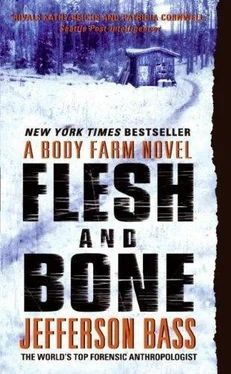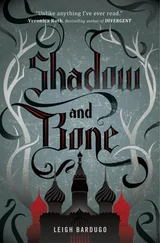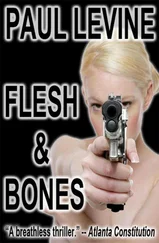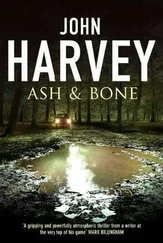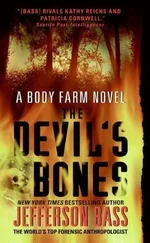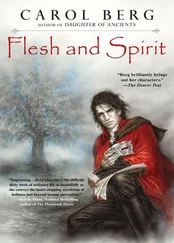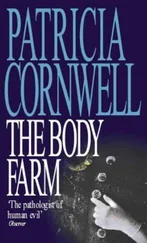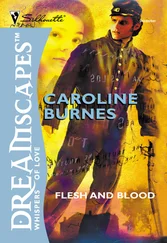Jefferson Bass - Flesh and Bone - A Body Farm Novel
Здесь есть возможность читать онлайн «Jefferson Bass - Flesh and Bone - A Body Farm Novel» весь текст электронной книги совершенно бесплатно (целиком полную версию без сокращений). В некоторых случаях можно слушать аудио, скачать через торрент в формате fb2 и присутствует краткое содержание. Год выпуска: 2007, Жанр: Детектив, на английском языке. Описание произведения, (предисловие) а так же отзывы посетителей доступны на портале библиотеки ЛибКат.
- Название:Flesh and Bone: A Body Farm Novel
- Автор:
- Жанр:
- Год:2007
- ISBN:нет данных
- Рейтинг книги:3 / 5. Голосов: 1
-
Избранное:Добавить в избранное
- Отзывы:
-
Ваша оценка:
- 60
- 1
- 2
- 3
- 4
- 5
Flesh and Bone: A Body Farm Novel: краткое содержание, описание и аннотация
Предлагаем к чтению аннотацию, описание, краткое содержание или предисловие (зависит от того, что написал сам автор книги «Flesh and Bone: A Body Farm Novel»). Если вы не нашли необходимую информацию о книге — напишите в комментариях, мы постараемся отыскать её.
Flesh and Bone: A Body Farm Novel — читать онлайн бесплатно полную книгу (весь текст) целиком
Ниже представлен текст книги, разбитый по страницам. Система сохранения места последней прочитанной страницы, позволяет с удобством читать онлайн бесплатно книгу «Flesh and Bone: A Body Farm Novel», без необходимости каждый раз заново искать на чём Вы остановились. Поставьте закладку, и сможете в любой момент перейти на страницу, на которой закончили чтение.
Интервал:
Закладка:
There were plenty of parking spaces along Main Street, and-irrefutable proof that Dayton was a small town-no meters to feed. I pulled into a spot directly across from the court house and strolled across the shady lawn toward the front doors. To the left of the entrance stood a life-size bronze statue on a pedestal; the inscription identified it as William Jennings Bryan, U.S. senator and three-time presidential candidate, nicknamed “the Great Commoner” for his affinity with ordinary folk of the time. Already famous for his dire pronouncements about the nihilistic implications of evolution, Bryan was recruited as the celebrity spokesman for the prosecution. I looked around for another statue; surely there was one of the lead attorney defending Scopes, Clarence Darrow. Darrow, like Bryan, was considered a titan. To his admirers, he was “the Great Defender”; to his detractors, “Attorney for the Damned.” If there was a statue of Darrow, it was well hidden.
As I puzzled over the sculptural imbalance, an older gentleman emerged from the court house, approached me, and said hello. “Where’s Darrow?” I asked. “Seems like they ought to have both lawyers out here.”
“Anybody wants to put up the money, we’d be glad to have him,” the man said. It turned out that he was the volunteer curator of the Scopes Trial Museum, housed in the basement of the court house. The court house had just closed, but when he found out I was passing through from out of town and hoped to see the courtroom, he graciously offered to let me look around not just the courtroom but the museum as well.
Stepping into the courtroom was like stepping back in time. The room occupied the entire second floor of the building; high windows lined every wall; the stamped-tin ceiling was the perfect counterpoint to the scuffed wood floor. Even the seats-old auditorium-style wooden seats bolted to the floor-were original. I sat in one of the front-row seats, imagining Darrow and Jennings hammering away at one another, and at one another’s philosophies: Darrow’s fierce belief in human free will and self-determination, Bryan’s dogged belief in the necessity of divine salvation. They staked out their positions in their opening arguments. “Scopes isn’t on trial,” Darrow proclaimed; “civilization is on trial.” Bryan set the stakes even higher, claiming, “If evolution wins, Christianity goes.”
I had long known that the trial was a media boondoggle; what I hadn’t fully realized, until I explored the exhibits in the basement, was how thoroughly orchestrated a publicity stunt it had been, from start to finish. Tennessee’s 1925 antievolution law was real enough, and so was the ACLU’s interest in challenging it. What was nearly pure hokum was the trial itself. It was the brainchild of local businessmen, Chamber of Commerce types who dreamed of putting Dayton on the map in a big way. When similar challenges to the new law began gathering momentum in other, larger Tennessee cities, the Dayton boosters maneuvered to get the date of the Scopes trial moved up, so Knoxville and Chattanooga wouldn’t steal Dayton’s thunder. Even the defendant, earnest young John Scopes, was a ringer: Scopes taught chemistry, not biology; he was persuaded to play the part of educational martyr as his contribution to the town’s economic salvation. Several students were carefully coached to confirm that, yes indeed, Mr. Scopes taught that man was descended from apelike ancestors. At one point, when a technicality came to light that threatened to nullify the charge against Scopes, Darrow-the Great Defender! — hastened to assure the court that the defense did not want the charge dismissed. Darrow hoped for a guilty verdict, one he could appeal all the way to the U.S. Supreme Court. In short, the noble script of Inherit the Wind notwithstanding, this landmark case in American jurisprudence was as carefully choreographed as any professional wrestling exhibition.
As planned, evolution lost in the local court, so presumably Christianity won. But the victory, even at the time, rang hollow. Bryan-who’d taken the witness stand to defend the truth of the Bible-was portrayed in the press as a “pitiable, punch-drunk warrior.” Six days after the trial, the Great Commoner died in a house on a side street in Dayton.
Finding out how thoroughly the “landmark” trial was a sham and a gimmick was a bit demoralizing; I hated to learn that our court system was as susceptible to self-serving manipulation and grandstanding as, say, political campaigns. On the other hand, the debunking did put my banana cream pie in a broader historical perspective. If Bryan was the Great Commoner and Darrow the Great Defender, maybe-just maybe-history would remember Brockton as the Great Meringuer. At the very least, I might be able to land a celebrity endorsement deal with Sara Lee pies.
CHAPTER 37
THE DAYLIGHT FILTERING THROUGHthe dusty screens of the cabin was even dimmer than usual when I awoke the morning after Jess’s funeral. I rolled across the lumpy mattress and pressed my face to the window. Through the grime on the glass and the dust and cobwebs on the screen, I thought-though it was hard to be sure-that I saw dark clouds scudding above the treetops. That meant I would have to work on my textbook revisions indoors, by kerosene lamp. Although the image seemed romantic, in an Abe Lincoln sort of way, I knew that a day of hunching over to read fine print by flickering lamplight would leave me with knotted shoulders and a screaming headache. As I wrestled with my choices-the case of cabin fever I’d get if I didn’t work, versus the aching head and neck I’d get if I did-the cellphone Jeff had loaned me began to ring. The display read PRIVATE NUMBER, so I considered not answering-what if a reporter had somehow gotten hold of the number? By the third ring, though, I decided I was being excessively paranoid. Somebody was out to get me, and I did want to be cautious, but I didn’t want paranoia to run away with me.
“Hello?”
“Bill? It’s Art.”
I felt my shoulders relax, not simply because it wasn’t a reporter, but because it was someone who actually still had faith in me. I’d called and left my number on Art’s voice mail and Miranda’s voice mail; I’d also given it to Peggy, my secretary, and Burt DeVriess and his assistant Chloe. That small circle of people, plus Jeff, seemed to represent the sum total of human beings whose loyalty and faith I retained. It wasn’t many, but they were all good people to have in my corner. Well, Burt DeVriess was an unsavory person to have in my corner, but nonetheless a crucial one.
“Hi, Art. How goes the pursuit of the pedophiles?”
“I set up a date yesterday with one of my boyfriends. We were supposed to meet at the food court at the mall. He stood me up. I’m feeling rejected.”
“You think he got suspicious? Figured out that Tiffany was really a cop?”
“Maybe. But I think he’s just skittish in general. I sent him a hurt-feelings e-mail last night, and he wrote back to apologize. Made some lame excuse about work. Sometimes it takes two or three times before these guys follow through-I’m not sure if they’re just chickens, or if they have some tiny shreds of conscience. But I’ve told him we need to take a break from each other for a week or so.”
“You playing hard to get?”
“No. I’ve taken some time off, actually. I thought maybe there might be a higher and better use of my investigative talents.”
“Higher and better than catching child molesters? What would be better than that?”
“Figuring out who killed Jess. Figuring out who’s setting you up. I’m off all week. How about we rough out some sort of plan?” Art’s generosity astonished me and moved me. “Bill? You still there?”
Читать дальшеИнтервал:
Закладка:
Похожие книги на «Flesh and Bone: A Body Farm Novel»
Представляем Вашему вниманию похожие книги на «Flesh and Bone: A Body Farm Novel» списком для выбора. Мы отобрали схожую по названию и смыслу литературу в надежде предоставить читателям больше вариантов отыскать новые, интересные, ещё непрочитанные произведения.
Обсуждение, отзывы о книге «Flesh and Bone: A Body Farm Novel» и просто собственные мнения читателей. Оставьте ваши комментарии, напишите, что Вы думаете о произведении, его смысле или главных героях. Укажите что конкретно понравилось, а что нет, и почему Вы так считаете.
